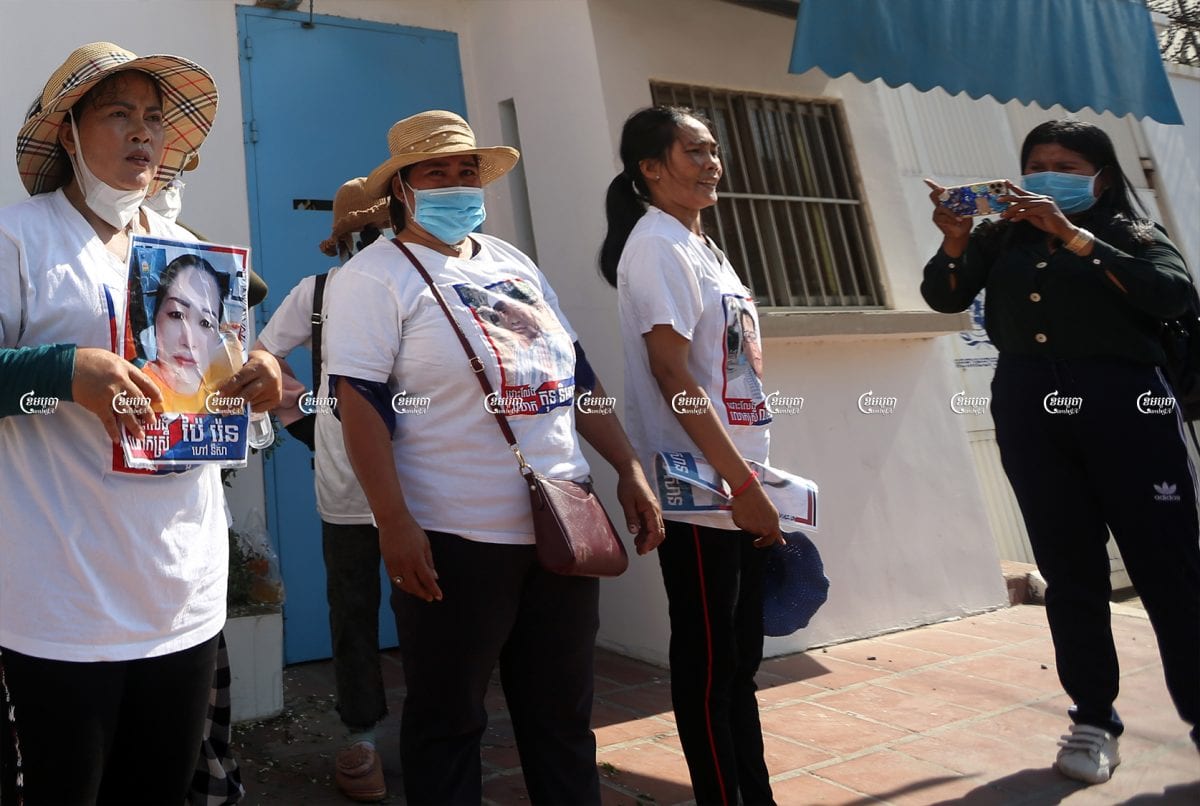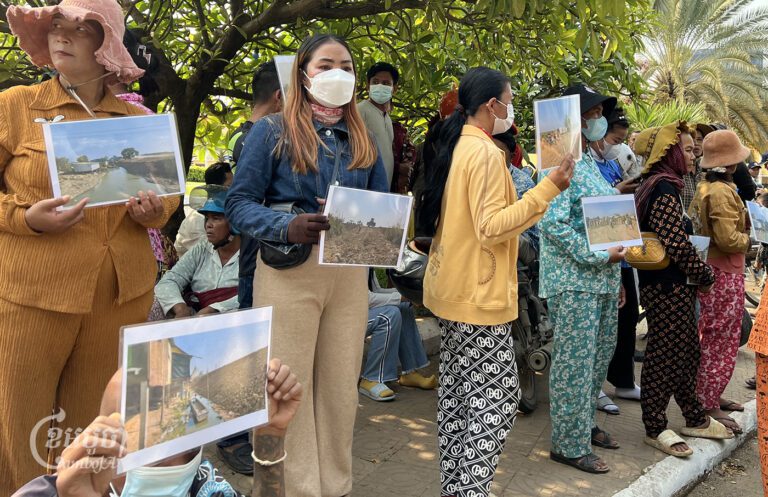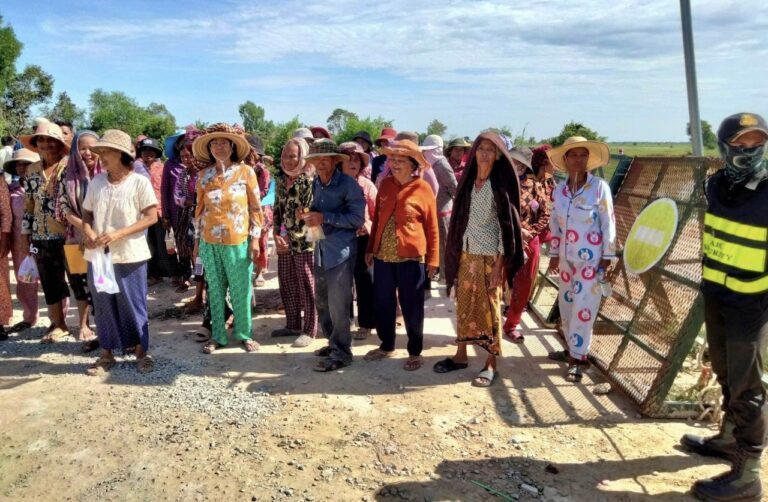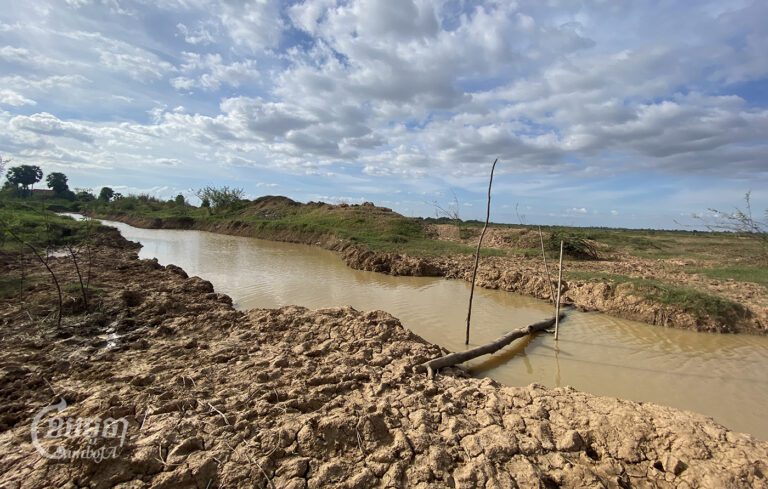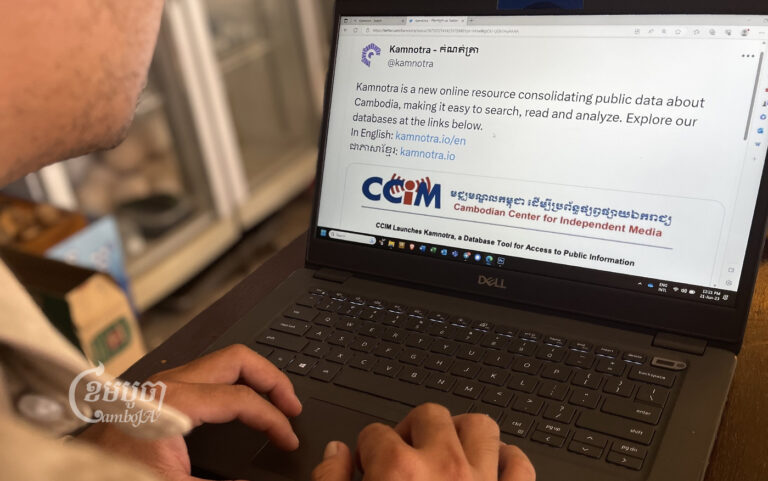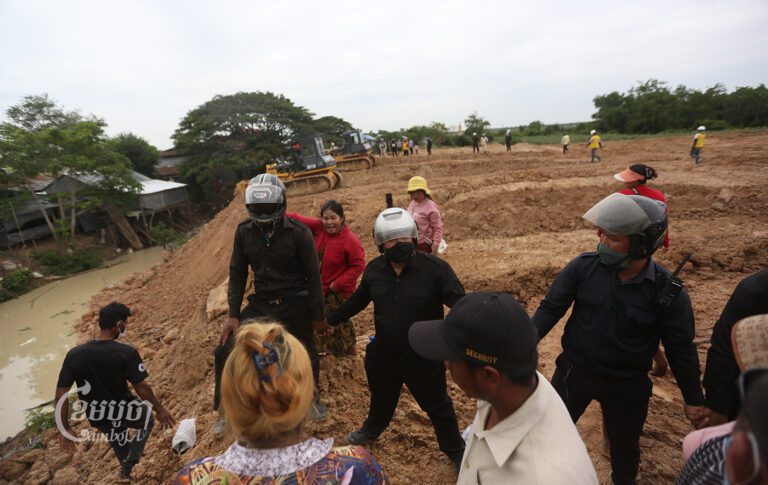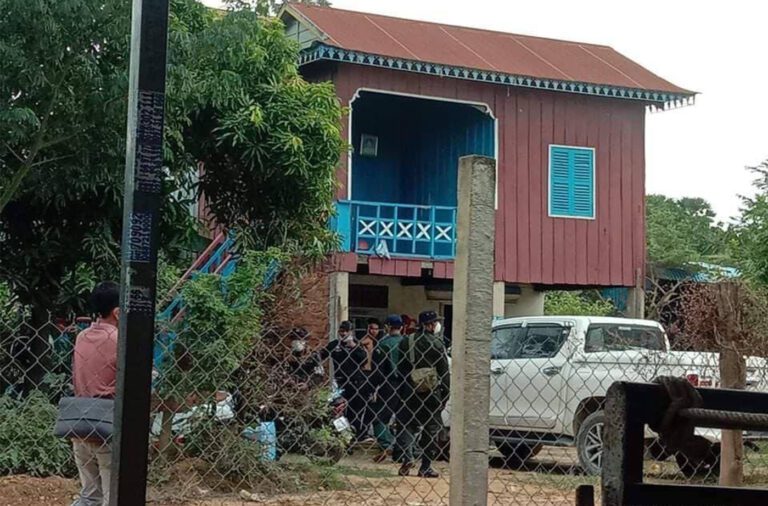The Ministry of Information has given local authorities the green light to take legal action against journalists that they deem are unprofessional or spreading false information that obstructs law enforcement.
The ministry made its decision after Kandal provincial authorities wrote to the ministry in June asking it to take legal action against a number of journalists who livestreamed a protest against a new airport development in Kandal Stung district. In its response, the ministry gave the provincial administration permission to pursue legal action independently without first going through the ministry.
“[In the cases of] those unprofessional journalists who violate the law or obstruct the authorities’ operation, disseminate false information and [commit] incitement that damages the benefit of any individual or institution, legal action can be taken by authorities,” the letter said.
In his original request to the Ministry of Information, Kandal provincial governor Kong Sophorn accused the reporters of being unprofessional in spreading false information and obstructing the authorities in resolving the dispute.
Luos Seng, the owner of online news station LSN News TV and one of the journalists targeted by provincial authorities, said that they had been under warning since he livestreamed the confrontation over Facebook.
“Authorities did not prevent journalists from entering the location where people were gathering,” he said. “But they complained about me to the minister of information for incitement, and the minister referred the case to court.”
Seng said that the decision was a threat to journalists who report true information to the public.
“Authorities threatened to sue me when I reported about the land dispute between residents and a new airport development project in Kandal Steung district, Kandal province,” he said. “I do not know what about it authorities consider an incitement, because I reported based on the words of the people. I think the authorities want to hide something in this.”
More than 300 families living on 400 hectares of land spread between three communes in Kandal Stung district and one in Takeo province’s Bati district have been locked in a dispute for three years since the start of the $1.5 billion airport project, which is being developed by the conglomerate Overseas Cambodia Investment Corporation (OCIC) along with the governmental State Secretariat of Civil Aviation. The negotiations between authorities and people have failed so far as officials stand firm on a land compensation price that has previously been rejected by villagers.
In mid-May, dozens of local people at the site protested after the developer sent tractors to clear their rice fields, damaging more than one hectare of planted land. The protestors have set up and maintained a tent to block the access road to the project site.
Kandal governor Kong Sophorn told CamboJA that there were some journalists who have been doing their work unprofessionally and could possibly disturb the local authorities’ ability to enforce the law.
“They go beyond their duty just to draw the audience’s attention for their media outlet,” he said. “They live video about the disputes that are being solved and exaggerate the issue. This can create a big confusion among public opinion.”
Sophorn said that authorities have yet to file a lawsuit against any journalists but warned them that continuing to report in a way that would cause problems for authorities would be met with consequences.
“We do not want to make any problems with journalists, as they are potential partners to work with,” he said. “But if those journalists act illegally and damage the public interest, we have no choice but to simply implement the law.”
Ministry of Information spokesperson Meas Sophorn said that the ministry always exercised flexibility in taking measures against journalists, and encouraged them to adhere to professional ethics and reporting true information.
“The ministry has always provided opportunities for journalists to make corrections and to educate them to follow professional ethics,” he said. “But when journalists commit illegal acts, they are also held accountable before the law.”
Nop Vy, executive director of the Cambodian Journalists Alliance Association, said that journalists who commit an offense in their reporting should be penalised under the press law, not the penal code.
“I think this is a picture of the intimidation of journalists, which is not new and still happening,” he said. “We should better train and educate them on ethics and professionalism, rather than continuing to threaten them.’
He also said that any attempt to ban journalists from entering a space must be determined by law.
“And if the authorities continue to ban journalists from entering the area [where abuses are being carried out], it would be a restriction on the freedom of the press,” he said.
Cambodia was one of the 37 governments that were named in a Reporters Without Borders report released on July 2 as having cracked down massively on press freedom.
Cambodian Centre for Human Rights executive director Chak Sopheap said that the ministry’s decision was concerning, especially in light of the government’s ongoing crackdown against independent media.
“The fight against unethical reporting must be carried out in good faith and not be used as an excuse to stifle freedom of expression and silence criticism,” she said. “The government should therefore consider resorting to less punitive measures.”
She said due to the subjectivity of what constitutes unethical or unprofessional reporting – and considering the government’s sustained crackdown on press freedom since 2017 – there is a real risk that criminal sanctions will be misused.
(Additional Reporting by Ngay Nai )


